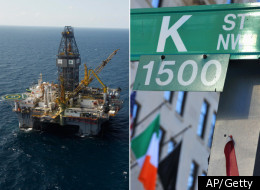BP's Influence Peddling In Congress Bears Fruit Two Years After Gulf Spill
Monday, March 12, 2012

BP Settlement Sells Out Victims -
Deal buries evidence of oil company willful negligence
[...]
There's no provision for a punishment fee for BP's willful negligence. In the ExxonValdez trial, a jury awarded us $5 billion in punitives - and BP's action, and the damage caused in the Gulf, is far, far worse.
BP now has to pay no more than proven damages. It's like telling a bank robber, "Hey, just put back the money in the vault and all's forgiven."
This case screamed for punitive damages. Here's just a couple of facts that should have been presented to a jury:
For example, the only reason six hundred miles of Gulf coastline has been slimed by oil was that BP failed to have emergency oil spill containment equipment ready when the DeepwaterHorizon blew out. BP had promised the equipment's readiness in writing and under oath.
And here's the sick part. BP did the same thing in the Exxon Valdez case. It was BP, not Exxon, that was responsible for stopping the spread of oil in Alaska in 1989. In Alaska, decades ago, BP told federal regulators it would have oil spill "boom" ready to roll out if a tanker hit. When the Exxon Valdez struck BlighReef, BP's promised equipment wasn't there: BP had lied.
And in 2010, BP did it again. Instead of getting the oil contained in five hours as promised as a condition of drilling, it took five days to get the equipment in place (and that was done by the USNavy).
This was more than negligence: it was fraud, by a repeat offender. Now BP's laughing all the way to the bank.
And there's more. BP mixed nitrogen into the cement which capped the well-head below the DeepwaterHorizon. BP claimed to be shocked and horrified when the cement failed, releasing methane gas that blew apart the rig. BP accused the cement's seller, Halliburton, of hiding the fact that this "quick-set" cement can blow out in deep water.
But, in an investigation that took me to CentralAsia, I discovered that BP knew the quick-set cement could fail - because it had failed already in an earlier blow-out which BP covered up with the help of an Asian dictatorship.
The lack of promised equipment, the prior blow-out — it all could've, should've, come out in trial.
Think about it: BP knew the cement could fail but continued to use it to save money. Over time, the savings to BP of its life-threatening methods added up to billions of dollars worldwide. BP will get to keep that savings bought at the cost of eleven men's lives.
[...]
Read the Article at HuffingtonPost








0 comments:
Post a Comment